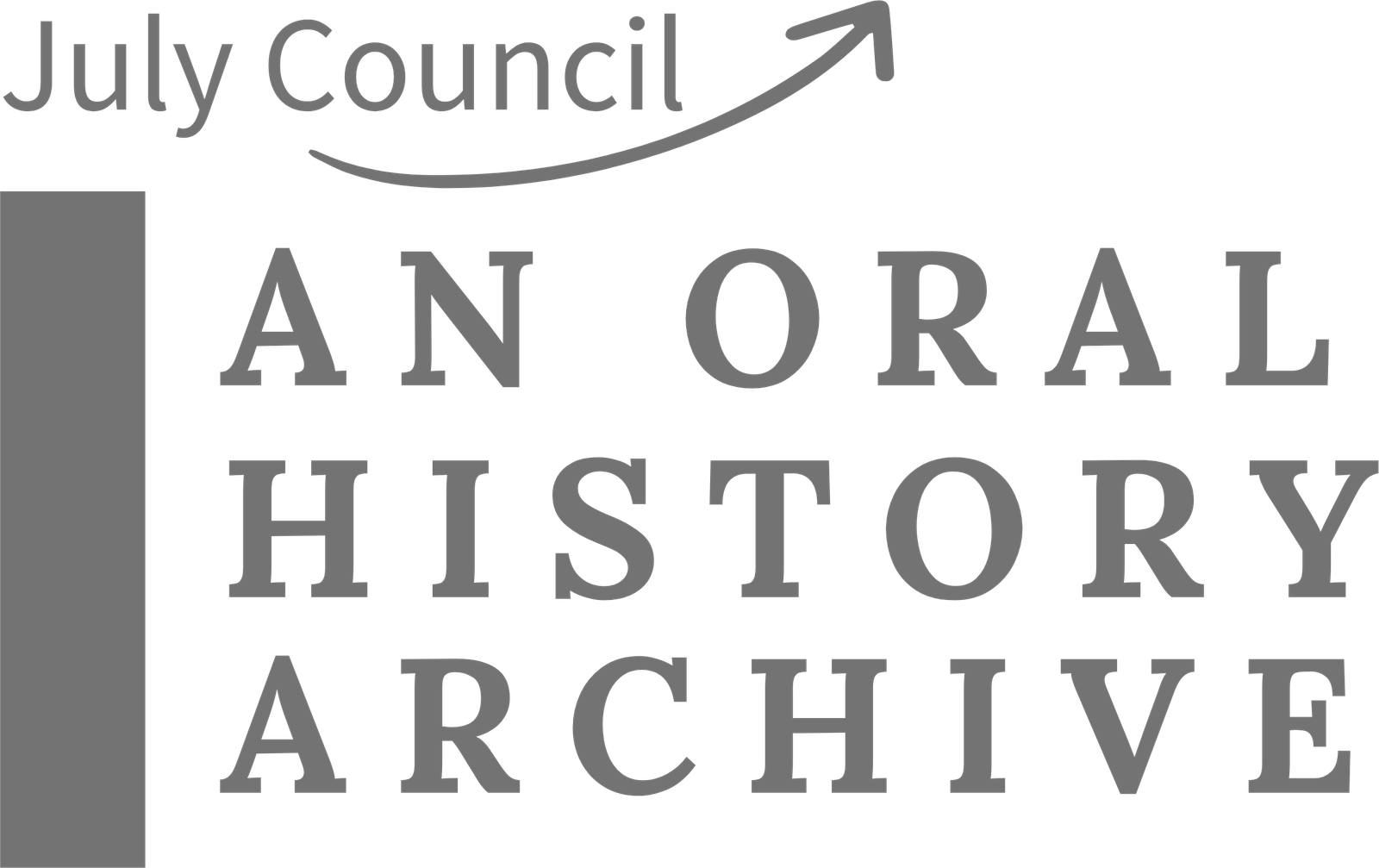Why This Archive
Because when regimes fall, and headlines fade, what remains are the voices. In moments of national rupture, traditional historical records often fail to capture the lived experience of ordinary people. They prioritize political developments, institutional shifts, and elite actors leaving behind the voices of those who bore the brunt of violence, loss, and resistance.
The Mass Uprising of 2024 was not just a political event, it was a people’s awakening. It was born in the streets, carried on the shoulders of the young, and paid for with blood. But what makes it truly historic is not just the fall of a regime but the lives changed, lost, and scarred in its making. Yet those stories, the ones that truly matter are at risk of being lost.
This is why we built July Council: To document memory, before time erases it; and to give the microphone to the people who were not politicians, but parents who buried their children, youth who carry bullet wounds, friends who remember the last words of a fellow now gone.
Oral history is not just storytelling but it is truth telling. It carries emotion, pauses, silence, pain, and resistance. It cannot be edited out or sanitized. It is as real as the tears that fall during our interviews, as powerful as the moments when words fail.
We believe that this archive is necessary because:
- History has been weaponized in our country to distorted, erased, and rewritten. But a mother’s voice cannot lie. A survivor’s eyes don’t forget.
- Justice demands memory. No movement is complete if its martyrs are forgotten.
- Future generations deserve access to the truth as unfiltered, unedited, and human.
We are preserving a people’s history, one home, one face, one voice at a time. This is not a luxury, it is a national duty. Because when we don’t archive our pain, others will write over it. July Council is here to ensure that never happens.
Why Oral History?
Oral history is a vital method of recovering truth from moments of historical rupture, political transition, and collective trauma. In the context of post-uprising Bangladesh, where official accounts are already being shaped by political interests, oral testimony offers a necessary counter-narrative rooted in lived experience.
1. Centering Human Experience over Abstract Data
Oral history captures memory not merely as information, but as a living repository of emotion, perspective, and embodied truth. Through first-hand narration, it brings nuance and subjectivity to historical events. Similar to how The 1947 Partition Archive in South Asia gathered thousands of personal stories to illustrate the human cost of Partition beyond political treaties or demographic maps, July Council aims to document the lives touched by the 5th August Uprising through their own voices.
These stories speak not just of how people died, but how they resisted, hoped, and lived. In the absence of such testimonies, historical memory becomes abstract stripped of the pain, courage, and complexity that defined it.
2. Documenting the Margins
Traditional history often overlooks the experiences of the rural poor, women, laborers, youth, and the wounded those furthest from power. Oral history provides space for these silenced voices. Just as World War II oral history projects like the USC Shoah Foundation or the Imperial War Museums’ collections preserved the memories of Holocaust survivors, frontline nurses, and refugee children, people previously omitted from the “official” war narrative likely July Council records the words of Bangladesh’s unsung martyrs, grieving families, and injured protestors. Their voices are not supplementary; they are central to understanding the soul of the uprising.
3. A Tool for Transitional Justice
In societies emerging from violent repression, oral history becomes essential for truth-seeking, democratic healing, and future justice mechanisms. The Truth and Reconciliation Commission of South Africa relied heavily on oral testimonies from apartheid victims, not only to reveal hidden abuses but to establish moral accountability and social repair. Likewise, in Bangladesh, where over 1,400 people were killed and nearly 20,000 wounded during the Anti-Discrimination Movement (as estimated by a UN investigation), survivor testimonies are indispensable to any genuine effort at justice, documentation, and national reflection.
Oral history is not just a research tool. It is a form of ethical witnessing, a repository of social truth, and a bridge between memory and accountability. By building this archive, July Council ensures that the future of Bangladesh will not be written solely by institutions of power but by the very people who fought, suffered, and endured for its democratic rebirth.
